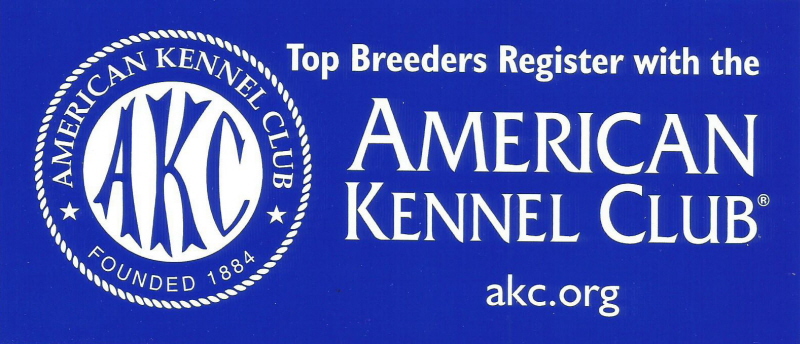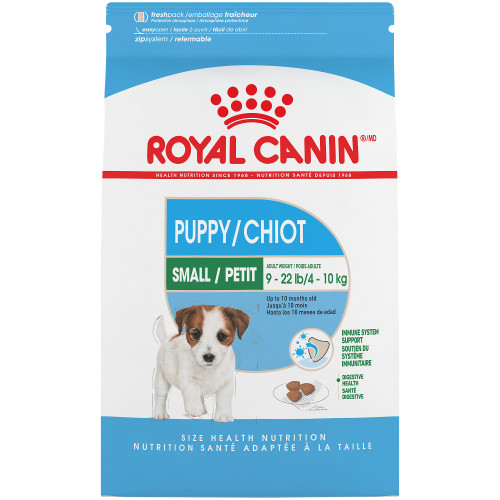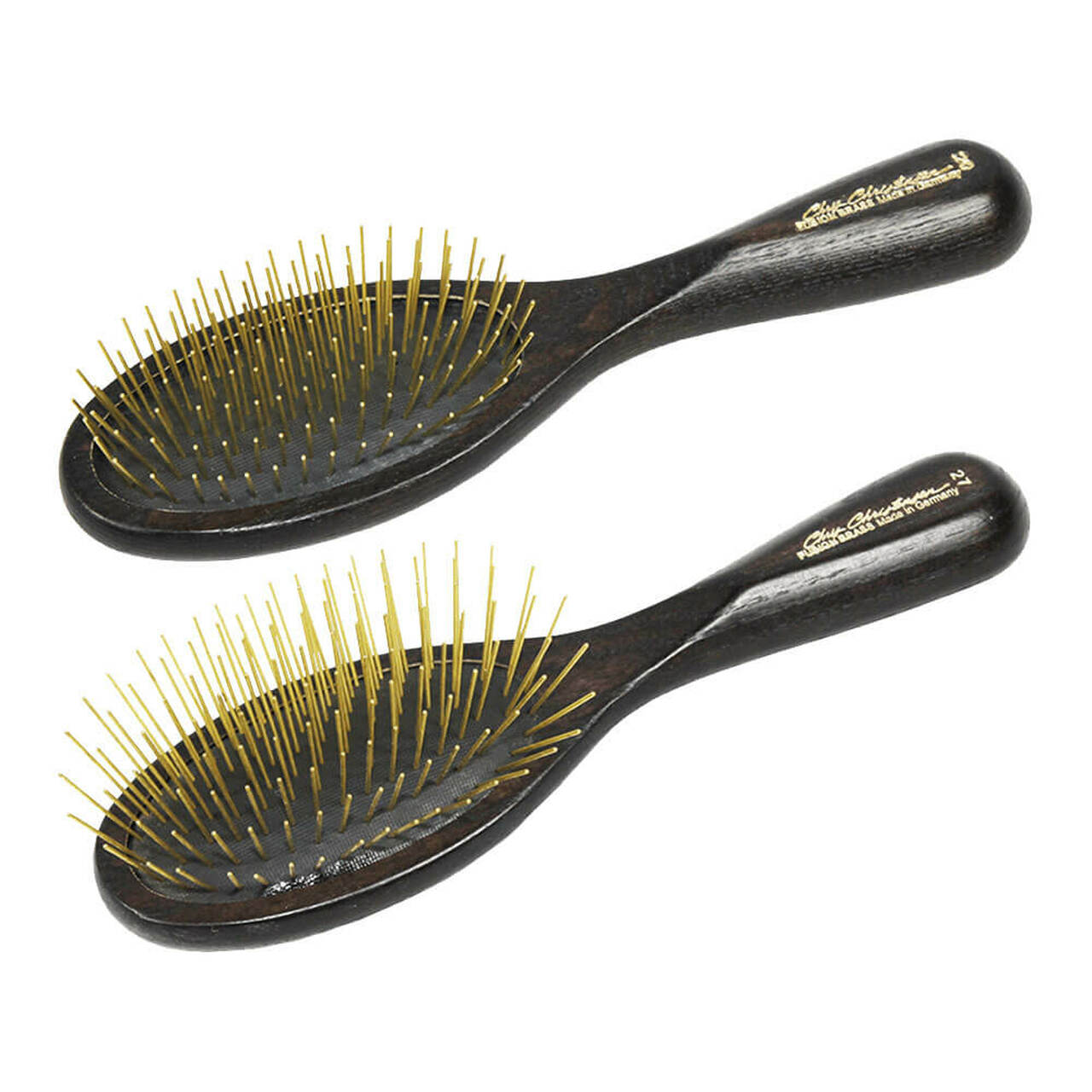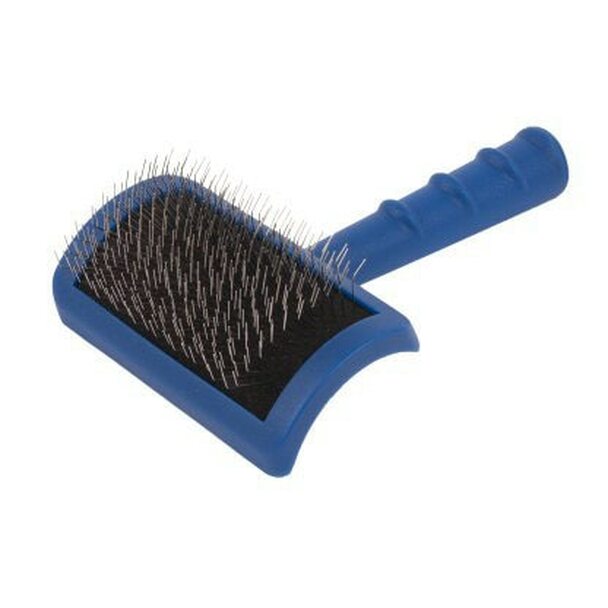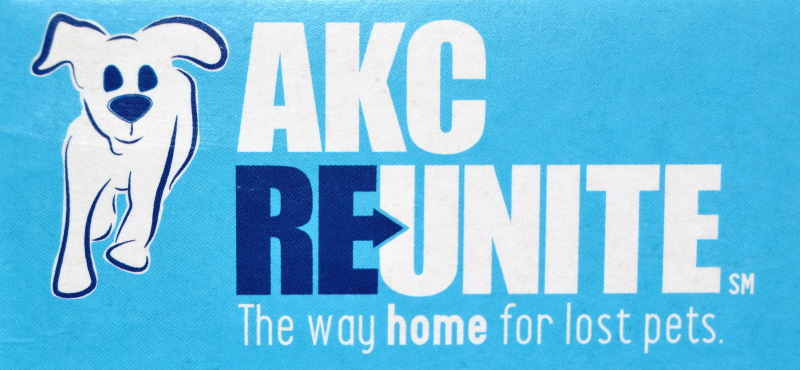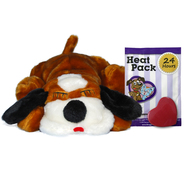
Titanium Havanese LLC
HE IS YOUR DEFENDER, YOUR PARTNER, YOUR DOG
Havanese puppies & Havanese puppies for sale
Havanese puppies for sale in Missouri
Here you will find common questions and answers we receive from those inquiring about our puppies. Other details about what we like and recommend that works best for us with the Havanese breed. We hope this page will help provide insight on questions you may have or the things you need to help you be successful in bringing a Titanium Havanese puppy home.
We are proud to announce that we have partnered with
AKC PPP
for a lifetime puppy protection
at no additional charge to you
on regular priced Havanese puppies
(may be purchased for $50.00 on reduced priced puppies)
This would cost $217.64 if purchased separately.
Your Puppy Protection Package will include:
AKC Registration
AKC Reunite Microchip Enrollment & Lifetime Pet Recovery Service
Lifetime Live Phone Support from AKC Dog Trainers (AKC GoodDog! Helpline)
AKC New Puppy Handbook
AKC Family Dog Magazine - 1 Year Subscription
Complimentary First Office Visit (at a Veterinary Practice listed with the AKC Veterinary Network)
Complimentary Free Trial AKC Pet Healthcare Plan
Questions:
What are the steps I need to take throughout the puppy adoption process?
Here is a checklist for you -
Step 1. Read over our website and health guarantee and agreement, if then you choose us as your breeder follow the next steps.
Step 2. Contact us via email, text, Facebook messenger or call to make sure puppy is available and let us know you want to adopt.
Step 3. Tell us a little about you and the environment/ home you are providing for the puppy.
Step 4. If we approve next step is to place a deposit to reserve your puppy (see purchasing and delivery page for information)
Step 5. Fill out the health guarantee and sales agreement. Scan and email back to us or mail it.
Step 6. Make a vet appointment (within 3 days of receiving puppy).
Step 7. Prepare your home and get supplies for puppy.
Step 8. Get familiar with the Trupanion or another pet health insurance.
Step 9. Pick up your puppy
Step 10. Register for your free 30 day trial of Trupanion (must be done within 24 hours of pickup).
Step 11. Let us know your official AKC name. At that time we will register your puppies AKC Puppy Protection Package; if applicable with your puppy purchase.
Step 12. Take puppy to vet for a check up on your end. Take health record with you. We recommend doing the exam, fecal and get deworming/flea/tick at this appointment. NO SHOTS at this appointment unless agreed with breeder or written in the health record. I do understand you may not want to make another trip the next week or when shot is due and want to get it done all at this appointment but it's not best for the puppy, sometimes that can be to much stress on a Havanese puppy. It's best to just get your general checkup to make sure you are happy with the health of the puppy and get set up with your vet and follow ups, then go back for shots. We DO NOT RECOMMEND LEPTO shots until at least 16 weeks of age, then monitor for reactions. Most vets are not familiar with younger pups (Havanese) having a hard time with the Lepto vaccine.
Step 13. Report initial first vet check to breeder. Keep a file for your puppies first year of all your vet checks, shots, etc.. This way if anything ever needs to be looked back on it can easily be accessed and sent to us.
Step 14. First 3 days is about bonding and adjusting your puppy. Relax and love on your baby. Make sure puppy is eating and drinking, puppy must nibble a little during adjustment period. If not eating the dry real well the first day, give a little spoon full of the can. And if you absolutely have to, put it in the crate with puppy where it feels safe and secure. Adjust from there.
What will come with my puppy?
Fresh grooming
Nails trimmed
Collar
Scented toy
Vet Check and/or Vet Health Certificate if applicable
Current Shots / Deworming / flea & tick applied (if needed) all written in a Health Record showing the dates
small zip lock bag of current food
small can of Royal Canin Appetite Stimulator can food (to be used during transition if not eating dry well those first 2/3 days)
Microchipped (already done)
AKC Puppy Protection Package (details above) - if applicable with adoption
Trupanion Insurance (free 30 day trial, details above, extra information)
1 year written Health Guarantee & Sales Agreement (see Guarantee and Agreement page)
NuVet samples and extra information
Folder and Bag with everything above inside
What supplies do I need for my new puppy?
It depends a lot on how you want to train your puppy, house training, ect.. but here is a list of things that we like to have here.
Food & water dish, Royal Canin Small Puppy Food
Treats (we like Bil Jac Treats best), NuVet Supplements (can be used as treats also)
Leash, collar and/or harness
Bed
Toys (No Rawhide or anything that can be swallowed)
Snuggle Puppy or clock in sock or something to snuggle with
Crate; if crate training
Wee Wee Pads
Expen or also called excercise pen/play pen (we use one inside the house and one outside for a potty area)
Baby Gates to keep the puppy in a certain area of your home until house trained fully Vinegar water or some type of cleaner in case of an accident
Puppy shampoo & conditioner (we like to use either Chris Christensen or Pure Paws products you can google them online)
A couple towels for puppy
Straight toothed comb & brush
Vet phone number on hand and appointments scheduled for routine vaccinations
I like to keep a bag packed for the car when we travel:
Crate
Bath Towel
Small Blanket
Paper Towels
Trash Baggy
Cleaner / Baby Wipes
Water & Water Bowl
Light Weight Collar & Light Weight Long Leash
Are the puppies Microchipped?
Click link for more information about microchipping and the AKC Reunite
Yes, we permanently identify all our puppies via microchip. This will need to be registered in your name. It is NOT a tracking device. This will give your puppy a unique ID number in a data base, so if ever lost there is a way to look up who's name this chip number is in where you can be contacted and be reunited. If your puppy comes with the AKC puppy protection package this will be paid and done for your by us.
What shots & deworming preventatives will my puppy have?
Each puppy will come with their own individual vaccination and deworming record that you will need to take to your vet for their first initial checkup. This will let the vet know what he will need to follow up on. Your new puppy will need to be kept up to date on his booter vaccines, just like a human baby. We start each puppy here with the following:
Deworming scheduled for every 2 or 4 weeks at minimum depending on age.
5-6 weeks of age they get a Parvo Shot & Intra Nasal Bordetella for kennel cough.
8 weeks of age they get a 6 way. Parvo, Distemper, Adenovirus Type 2, Parianfluenza & Corona.
If we still have the puppy past 8 weeks we do follow up boosters every 3 weeks until they are 17 weeks of age. And regular routine de-wormings. Interceptor Plus or Sentinel started @ 10 weeks old. Rabies vaccination is given at 12 weeks or older.
SIDE NOTE: THIS IS NOT OVER VACCINATING, PLEASE BE EDUCATED AND ASK YOUR VET. WE HAVE NEVER! HAD A VET TELL US OUR VACCINATION AND DEWORMING PROTOCOL WAS BAD.
Do the puppies get their vaccinations from the vet or do you do them yourself?
It has been brought to my attention by a previous buyer of one of our puppies, that I should have this information on my website. My sincere apologies if this information is something you as a buyer wanted that I did not provide previously.
YES, I give all the vaccines your new baby needs, as per my vet recommendations and under my vets guidelines, except for the rabies vaccine and my vet gives that at the recommended age as required by state laws. I have many, many hours of continuing education on vaccines and how to give and monitor them along with many, many years experience giving them as well. My vet does sign off on my vaccine protocol. These vaccines are purchased directly from Revival Animal Health and sent to me in a cooler the next day and they are immediately put in a refrigerator that is only used for vaccines where the temperature is very closely monitor, the exact same way our vet does. We use a trusted brand called Nobivac.
I am very strictly monitored as a breeder here in the state of Missouri. Some states don't have the guidelines and regulations that we have here in our state, so it is understood if you or your vet may not trust some breeders or rescue's that are not regulated or those who may not be doing things to your expectations. There are some that may purchase shots from a feed store or pet store, and no, those can't always be fully trusted, on the brand, or on how they are purchased, or handled.
Please understand that I do know the fear of purchasing a puppy and not knowing if it had proper vaccinations or if the person is lying about them to cut cost or etc, that's why my standard's are so much higher. But because I deeply care about each of my dogs and puppies, remember these are my babies first, if you cannot trust me and my vaccine protocol, as your new companion's breeder, then you have not found the breeder you are looking for so please keep searching until you can find a breeder you trust. I do not want the babies I've worked so hard to provide for families, to be over vaccinated and made sick, because you or your vet don't trust that I have done it properly. A vet can be very intimidating but stick to what is best for your puppy. A breeder's years of experience, heart ache, success, failure, tears, trial and error and more ceu credit hours than that are required to be done by most vets means so much to back a good breeder.
Thank you to all those who have trusted me and as your Breeder!
Where do you raise your puppies?
Our babies are born and raised in our home. They are loved and watched at all times. Being a stay at home homeschool mom enables me to give full attention to everyone and prepare and rear puppies right with us and our human children. We have a play pen in our living area and a play pen in our homeschool area and one outside when old enough to venture in new areas.
Can we come see the puppies?
We do completely understand the need to want to see the babies in person. But there are several factors we must take in consideration.
We do not allow anyone to come out to see the puppies until they are at least 6-7 weeks old. Before this time they are still with their mothers and just like us, the momma's get a little nervous when there are strangers coming in and out looking at their babies and touching them and taking them from them when they are wanting to keep them all together and protect them until weaning age. Just think about what it would be like if you had these babies and were a little dog and you had all these different people coming into your space, hovering over you and touching your babies. I've seen the look in their eyes and as their owner I just want to protect them from that fear of "what's going on?"
Another factor that plays a roll in this is diseases, you may have walked somewhere previously and not known it but may have picked something up on your shoes or even clothing. Our puppies generally get vaccinated at 6 weeks of age so for their protection they need to be vaccinated first before being handled or seen.
Any puppies that are already sold will not be available for viewing as they are already spoken for and we are protecting someone else's pet at that point.
Most of our puppies are chosen by the pictures and/or video's we send out. And a lot of times they are sold by the time they are 6 weeks old. I know that makes it hard for those of you looking to come out and pick out a puppy. With the way the demand, technology, laws and times have changed it just makes it nearly impossible to be able to choose a puppy in this way any longer without missing out on the puppy you originally thought you wanted. I understand this is hard for some, we totally get it... But to make sure we can get all of our puppies placed in loving homes safely this is just the way it is. If you were to come out before they were 6 weeks old the only thing you really would be seeing is what colors they are or how they compare in size in the litter, which you can see in pictures or speaking with me. A puppies eyes don't open till they are 2 weeks old, then ears open at 3 weeks, visual site improves by 4 weeks.... they are just sleeping a lot up to this point because it takes so much energy to grow. Personality really doesn't start to come out till they are 7 weeks and older, after they leave momma, then sometimes that changes after they get in their new homes and they adapt to your rules and boundaries. The Havanese breed standard tells a lot about the traits and characteristics of a Havanese that is bred responsibly and raised in a normal environment.
A deposit must be placed on a puppy before we will allow you to come out. No exceptions! This is transferable to another puppy if you so choose another puppy that is available at the time you visit. This insures you are not wasting my time away from my dogs/puppies and family, helps give a little extra security that you are not a terrorist, thief or criminal and that you are serious about the commitment. Deposits can be transferred to future litters as well.
Remember our home and our dogs' home is our personal space. We love children and our new families but if you are bringing your children or other adults with you to our home please keep them in the space we are allowing you to be in. We have other farm animals and things that we do not need the extra stress placed on from strangers running about or walking/wondering around. And yes I have to say this because it happens. LOL. Preferably 1 or 2 adults but if calm and responsible we will work with you.
If we are meeting you at one of our meeting locations we will take our time and let you visit with the puppy to make sure you are happy with the puppy before we depart.
Are the puppies potty trained?
Our puppies are started on potty pad / paper training. Some introduction to the crate is started upon their leaving. Here is a link to the local trainers for more information on house breaking:
What price is the puppy? Why are your puppy prices what they are?
As of 2024 pet prices are generally starting at $!,500-$2,500 for males and $2,500 for females and can go up from there depending on color and pedigree. We do not raise our puppies cheap therefore our price reflects the care and quality you are getting in one of our puppies. Prices subject to change. Some years there maybe fluctuations and exceptions to pricing on select pups/litters and economy influence.
Our prices are based on what we put into our breeding program. When you purchase a puppy from us you are choosing a puppy from a legal, licensed, professional breeder. To be a legal licensed professional breeder in the State of Missouri takes a lot of time, money, love and passion for the breed. When you purchase a puppy from us you are not bringing home a puppy from a backyard breeder, illegal breeder, a flipper, hobby breeder or just someone trying to make a buck. You are bringing home a puppy that comes to you from loving hands that is healthy, fully vaccinated, fed a high quality food from the beginning for the best start, vet checked, proper health testing through the orthopedic foundation for animals on parents, healthy parents and from a breeder who understands that puppy's background and where it came from, health guaranteed, easy opportunity for health and accident insurances for added protection, socialized and loved from day one, someone who sat beside momma while she was birthing and helped each baby take their first breath of life. A breeder that is there for you for the lifetime of your puppy and not just after the sale. That is what separates us from others.
Find your breeder, then find your puppy :)
It's not cheap raising quality, healthy puppies!
Can I change my puppies name?
Yes! The names they are given here are for identification purposes. Your puppy will adapt to a new name once in their new environment. I can start calling them by the name you prefer if you'd like. Most of the time they don't pick up on a specific name when the litter is together, until they get the one on one training from you and/or around 12-14 weeks of age but can still adjust to something different with training. If the AKC puppy protection package is included with your puppy you will need to send us an "official registration name" as soon as possible so we can send in for your puppies AKC paperwork and get everything registered in your name for you. This is all paid by us through the puppy protection package option. Most include their puppies name with their last name or some type of unique name and you are welcome to use Titanium in the name as well showing puppy is from a Titanium breeding. If we don't receive a name within a few days of you getting your puppy then I may just use the one we chose for identification.
When do I spay or neuter my Havanese?
We recommend having your Havanese Puppy spayed or neutered around 6-8 months of age to prevent any unplanned breeding's.
Do/Will you sell breeding rights or full registration?
FYI for Breeders looking to purchase our puppies:
Due to our bloodlines getting into unappreciative hands, our lines and hard work being taken advantage of and those not fulfilling health testing responsibilities for the betterment of the breed, we have decided we will no longer sell full registration / breeding rights.
Our final decision came after speaking with our AKC handler along with some of our Havanese we have invested well over $5-9,000 in from purchasing, testing and showing them.
We have decided this is best for us, the breed and the future of our bloodlines at this time.
Our puppies will only to be placed in loving pet homes.
We will continue to direct and help mentor our breeder families we have worked with in the past.
Do you show your dogs?
Not all of our dogs are shown. We will show a female once in a while but we mainly focus on showing the sires. Starting in 2023 we went to showing in IABCA, the International All Breed Canine Association. Although we do still have the utmost respect for AKC shows, it is just not as feasible anymore for us for several reasons. One being we live 3 hours one way from any close show and another is trusting a handler. Since our handler retired and after discussion with our handler, we have seen it's just not the sport for us in AKC at this season in our lives. However, the International shows have International and AKC judges judging the dogs and giving written critics which we love! To us that means so much more to actually sit down with the AKC judge and get their evaluations in writing compared to barely being able to speak to them in the AKC ring. It's a no brainer, why throw away thousands of dollars and have your dog being dragged all over the country and exposed to no telling what just to try and find a major to get points when you can go in 2 days and speak to several AKC judges about your dogs and bring them back home where you know they are loved and cared for.
There are AKC "people" or "breeders" who look down on me because I do not show in AKC as much as they do or because I have not titled my own pups in AKC. Folks that's just not what it takes to be a good breeder. I have seen countless dogs championed AKC and fully tested who were really bad specimens of the breed. Just because you show AKC does not mean your dogs are any better. To many dogs are championed, due to the politics of it, that shouldn't be.
If you have questions feel free to ask me, call and speak with me. Please use caution when talking with others on forums, you have no idea the person they are. We are not apart of those "gossiping groups" spreading false lies they know nothing about, and will not be.
My Havanese "Have to Have's" & Links
These are some of the things I like to use for the Havanese breed, these links show some of the places you can purchase but you may also find them elsewhere, this is just so you get the idea of what products I've found to work for me over the years.
This information will be printed and sent in your puppy packet.
https://www.revivalanimal.com/
Revival is my go to store for most of my health care needs. They provide lots of educating reading material as well.
https://www.royalcanin.com/us
https://www.royalcanin.com/us/dogs/products/retail-products/small-puppy-dry-dog-food
For puppy food, can also be found at your local pet store.
www.showdogstore.com
This website has a lot of the necessities I use for grooming.
https://purepaws.3dcartstores.com/
I will go here to look and read about the products, most of the time I just order them from the show dog store when I find what I want.
www.cherrybrook.com
Cherry Brook has my blue slicker brush that I can’t live without.
How much brushing and care depends on how you keep your Havanese coat. Keeping a long "show" coat takes a lot of work. A small mat can turn into a large mat very quickly. Some may not think their dog is matted but is. Mats can happen really close to the skin and you may not even feel them. So parting the hair and brushing sections on longer coats is important. Good thorough brushing on long coats needs to be done twice a week. Extra attention given to the feet, behind the ears and under legs. Bathing once a week to once every two weeks depending on your coat care. Most generally our pet parents keep their Havanese in a puppy cut. It's a cute cut and leaves just a little hair to give character. This is the best way to keep your Havanese coat if you don't have the extra time to care for a long coat. With a puppy cut you will just need the normal grooming care.
Pure Paws Products:
This is the shampoo and conditioner products we use. Very little goes a long way. Any of these products will work depending on the type of coat your dog has. For just the basic starting out coats on pet puppies I recommend the Silk Basics line. You can order these from the Show Dog Store website, Amazon or directly from Pure Paws website.
For dry skin:
https://purepaws.3dcartstores.com/Oats-N-Aloe-Line_c_34.html
For growing a show or damaged coat:
https://purepaws.3dcartstores.com/Reconstructing-Line-_c_64.html
For routine maintenance:
https://purepaws.3dcartstores.com/Silk-Basics-Line_c_60.html
For extra hydration:
https://purepaws.3dcartstores.com/H20-Line-_c_46.html
For whitening:
https://purepaws.3dcartstores.com/Brightening-Shampoo-16oz-_p_7.html
https://purepaws.3dcartstores.com/White-Magic-Shampoo-16oz_p_233.html
NEVER BRUSH A DRY COAT,
ALWAYS USE A CONDITIONING SPRAY WHEN BRUSHING TO PREVENT BREAKAGE
Straight pin brush similar to this:
You want to use a straight pin brush because a brush with the balls on the tips will break the coat. I prefer the Chris Christensen brushes; they are made better and last longer than your cheaper brushes.
20 mm for short coats / 27 mm for long coats
https://www.showdogstore.com/chris-christensen-fusion-pocket-brushes/
Straight comb similar to this:
Use this to comb through the coat to make sure you got all mats out. You can order them from different places, pretty easy to find.
Slicker Brush:
It is really great at working through a mat.
Similar to this one, with straight pins, balls on the end of the pins will break hair.
https://www.cherrybrook.com/transgroom-tuffer-than-tangles-slicker-brushes/?sku=37-105-3&gclid=Cj0KCQjw-r71BRDuARIsAB7i_QPcZODhrBf1HNQwOPlx_5cmdDy-eXMP18LbmqvmlofC1By_dt6WeVYaAo5HEALw_wcB
This is the food your puppy is currently eating
We recommend the Snuggle Puppy
Dogs and puppies are pack animals and are instinctively drawn to their mother and others in their pack. Snuggle Puppy recreates that intimacy with physical warmth and a simulated heartbeat. The result is a calmer, more peaceful pet - one that feels less loneliness, fear and separation anxiety.
Trupanion is now also offered with all of our puppies!
Medical insurance for the life of your pet.
Free for the first 30 days if activated within
24 hours of receiving your puppy!
Feeding Your Puppy...
Your new puppy is currently being feed
We highly recommend this food and advise you to keep your
new puppy on this food for at least the first 6 months to 1 year.
You will receive a small baggy of this food.
From weaning to growth and development, energy
requirements, immune support and digestive development
are critical at this stage in a puppy's life. And raising a
healthy, happy puppy requires time and planning and
proper nutrition to address his needs. But with the best
puppy food and a little patience, you can ensure that your
life together gets off to a great start.
Nutrition for the Growing Puppy
Every nutrient in your pet’s food should have a specific purpose. From proteins, lipids and carbohydrates to vitamins and minerals, all should be properly balanced, because excesses can be just as detrimental to your puppy as deficiencies. If these nutrients are fed in the wrong proportions, nutritional deficiencies or excesses can occur, which could lead to long-term damage to the puppy’s health and wellness.
A quality formula targeting growth should be suited to the type of puppy, according to the size of his breed and his age, his sensitivities or the particular features of his breed. When a puppy reaches adulthood, a “maintenance” diet should then be selected that precisely meets the adult dog’s requirements.
Royal Canin offers comprehensive health nutrition solutions for every dog, at every life stage.
How To Feed
Your puppy should be given up to four meals a day in the weeks following weaning. The number of meals will vary depending on age, starting with four meals a day, before transitioning to three, and then to two at mid-growth. Always give your puppy food in the same bowl, in the same place to teach good eating habits.
Ideally, food quantity should be based on the growth curve of your specific breed of dog. Overfeeding can cause excess weight gain, obesity in adulthood and joint and bone issues in the large breed puppy. Be sure to review the feeding guidelines recommended on the packaging of your puppy food formula and measure each serving accordingly.
It's also very important to transition your puppy slowly when you change your puppy’s diet. Ask the person you obtained the puppy from about their feeding methods (number of meals per day, brand/type of food, etc.), because switching to a new food and routine abruptly can cause digestive upset.
We recommend you visit
https://www.royalcanin.com/us/dogs/products/retail-products/small-puppy-dry-dog-food
to learn more about Royal Canin Pet Food!
We feed our adult dogs Pro Plan and have really liked how our dogs are doing on it but still prefer the Royal Canin for the babies because it is smaller and has a more encouraging taste for them to eat more and better plus it's a good food to start out on.
We order the Royal Canin online at the link above and we purchase the Pro Plan at either the pet store, Menards or Orscheln.
HAVANESE BREED INFORMATION:
About the Breed
Havanese, the only dog breed native to Cuba, are cheerful little dogs with a spring in their step and a gleam in their big, brown eyes. These vivacious and sociable companions are becoming especially popular with American city dwellers. ¿Distinctive features of the Havanese include a curled-over tail and a gorgeous silky coat, which comes in a variety of colors. Some owners enjoy cording the coat, in the manner of a Puli, and others clip it short to reduce grooming time. Happily, Havenese are just as cute no matter what hairdo you give them. Their small but sturdy bodies, adaptable nature, and social skills make Havanese an ideal city dog, but they are content to be anywhere that they can command the attention of admirers young and old alike. Havanese, smart and trainable extroverts with the comic instincts of a born clown, are natural trick dogs. Havanese are also excellent watchdogs and take the job seriously, but will usually keep the barking to a minimum.
What To Expect When Caring For a Havanese
Owning a dog is not just a privilege; it’s a responsibility. They depend on us for, at minimum, food and shelter, and deserve much more. When you take a dog into your life, you need to understand the commitment that dog ownership entails.
Grooming
The long, soft, and silky coat of the Havanese needs to be groomed daily to be kept free of mats and tangles. This can be done by gently running a comb or soft brush over the dog while he is on your lap. Pet owners often choose to have their dog's coat clipped to a short trim to reduce grooming time. The Havanese should also be bathed occasionally as needed. The corners of the eyes should be gently cleaned daily to prevent tear-stain of the lighter-colored hair in the area. Check the ears often to remove excess wax or accumulated debris, and wipe out the inside of the ear-flap with a slightly moistened gauze or paper towel.
Exercise
The Havanese has moderate exercise needs. They will benefit from a brisk daily walk or a fun playtime with their owner in the backyard, as they are happiest when someone is with them. Romping inside the home can also provide enough activity. Never over-exercise a Havanese of any age. If they are panting and struggling to keep up, it is time to go home. Havanese do well in both houses and apartments, but they are not happy left alone for hours at a time.
Training
Havanese are highly intelligent and eager to please, and they are easily trained so long as you use only positive methods. This can be a sensitive breed, so care must be taken to not scold them harshly. Socialization from an early age is very important. Expose them calmly to a wide variety of new places and new people, always ensuring that the experiences are positive and not intimidating. Gentle, patient training will result in a wonderful companion dog. They are affectionate with people and get along with other nonaggressive pets.
Nutrition
The Havanese should be fed a high-quality dog food appropriate to his age (puppy, adult, or senior). Some Havanese can be prone to getting overweight, so watch your dog's calorie consumption and weight level. If you choose to give your dog treats, do so in moderation. Treats can be an important aid in training, but giving too many can cause obesity. Give table scraps sparingly, if at all, especially avoiding cooked bones and foods with high fat content. Learn about which human foods are safe for dogs, and which are not. Check with your vet if you have any concerns about your dog's weight or diet.
History
The Havanese (singular or plural, the name’s the same) is from the ancient Bichon family of little white dogs and claims such breeds as the Bichon Frise and Maltese as probable common ancestors. Since the earliest days of human civilization, lively lapdogs of this type were bartered around the world by seafaring merchants. In all times and places, small, clever dogs that did no useful work were among the possessions that set royals and aristocrats apart from lower social classes.
The native lapdog of Cuba’s aristocrats and wealthy planters was the Havanese, named for the capital city of Havana, where the breed gained greatest favor. Depending on the source, the breed’s forerunners were said to be brought to the island nation by Italian sea captains or by the Spaniards charged with colonizing the New World in the 1600s.
During its approximately 300 years in the lap of Cuban luxury, the breed was refined, perhaps with Poodle crosses, into today’s Havanese, once called the Blanquito de la Habana (Havana Silk Dog). The pivotal event in the breed’s history came in 1959, with the Communist takeover of Cuba. Many well-heeled Cubans fleeing Fidel Castro’s revolution brought their little dogs with them to America. With the help of American fanciers, the refugees preserved and perpetuated the Havanese. The breed is now a popular choice for discerning pet owners around the world.
Among celebrity Havanese owners were two of the world’s most celebrated writers. Ernest Hemingway fell under the Havanese spell during his 20 years in Cuba. About a hundred years earlier, Charles Dickens owned a tiny Havanese named Tim.
Did You Know
The Havanese is AKC's 142nd breed. The Havanese was recognized as a breed by the AKC in 1996.
The Havanese was once called the Havana Silk Dog or the Spanish Silk Poodle.
The Havanese descends from the same ancestor as the entire Bichon family, the Tenerife.
The Havanese is the National Dog of Cuba and the country's only native breed (Havana = Havanese).
The coat of the Havanese is deceptively warm-looking; in reality, it is an insulation and barrier from the sun and overheating.
Despite its being a new breed to the AKC, the Havanese is an old breed, descending from breeds brought over from Spain to Cuba.





